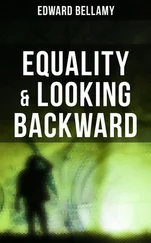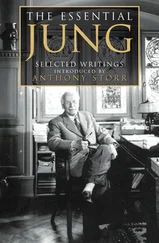"But excuse my vehemence. Remember that I am arraigning your civilization and not you. What I wanted to bring out is that the principle that the first duty of society is to safeguard the lives of its members was as fully admitted by your world as by ours, and that in failing to give the principle an economic as well as police, judicial, and military interpretation, your world convicted itself of an inconsistency as glaring in logic as it was cruel in consequences. We, on the other hand, in assuming as a nation the responsibility of safeguarding the lives of the people on the economic side, have merely, for the first time, honestly carried out a principle as old as the civilized state."
"That is clear enough," I said. "Any one, on the mere statement of the case, would of course be bound to admit that the recognized duty of the state to guarantee the life of the citizen against the action of his fellows does logically involve responsibility to protect him from influences attacking the economic basis of life quite as much as from direct forcible assaults. The more advanced governments of my day, by their poor laws and pauper systems, in a dim way admitted this responsibility, although the kind of provision they made for the economically unfortunate was so meager and accompanied with such conditions of ignominy that men would ordinarily rather die than accept it. But grant that the sort of recognition we gave of the right of the citizen to be guaranteed a subsistence was a mockery more brutal than its total denial would have been, and that a far larger interpretation of its duty in this respect was incumbent on the state, yet how does it logically follow that society is bound to guarantee or the citizen to demand an absolute economic equality?"
"It is very true, as you say," answered the doctor, "that the duty of society to guarantee every member the economic basis of his life might be after some fashion discharged short of establishing economic equality. Just so in your day might the duty of the state to safeguard the lives of citizens from physical violence have been discharged after a nominal fashion if it had contented itself with preventing outright murders, while leaving the people to suffer from one another's wantonness all manner of violence not directly deadly; but tell me, Julian, were governments in your day content with so construing the limit of their duty to protect citizens from violence, or would the citizens have been content with such a limitation?"
"Of course not."
"A government which in your day," continued the doctor, "had limited its undertaking to protect citizens from violence to merely preventing murders would not have lasted a day. There were no people so barbarous as to have tolerated it. In fact, not only did all civilized governments undertake to protect citizens from assaults against their lives, but from any and every sort of physical assault and offense, however petty. Not only might not a man so much as lay a finger on another in anger, but if he only wagged his tongue against him maliciously he was laid by the heels in jail. The law undertook to protect men in their dignity as well as in their mere bodily integrity, rightly recognizing that to be insulted or spit upon is as great a grievance as any assault upon life itself.
"Now, in undertaking to secure the citizen in his right to life on the economic side, we do but studiously follow your precedents in safeguarding him from direct assault. If we did but secure his economic basis so far as to avert death by direct effect of hunger and cold as your pauper laws made a pretense of doing, we should be like a State in your day which forbade outright murder but permitted every kind of assault that fell short of it. Distress and deprivation resulting from economic want falling short of actual starvation precisely correspond to the acts of minor violence against which your State protected citizens as carefully as against murder. The right of the citizen to have his life secured him on the economic side can not therefore be satisfied by any provision for bare subsistence, or by anything less than the means for the fullest supply of every need which it is in the power of the nation by the thriftiest stewardship of the national resources to provide for all.
"That is to say, in extending the reign of law and public justice to the protection and security of men's interests on the economic side, we have merely followed, as we were reasonably bound to follow, your much-vaunted maxim of 'equality before the law.' That maxim meant that in so far as society collectively undertook any governmental function, it must act absolutely without respect of persons for the equal benefit of all. Unless, therefore, we were to reject the principle of 'equality before the law,' it was impossible that society, having assumed charge of the production and distribution of wealth as a collective function, could discharge it on any other principle than equality."
"If the court please," I said, "I should like to be permitted at this point to discontinue and withdraw my suit for the restoration of my former property. In my day we used to hold on to all we had and fight for all we could get with a good stomach, for our rivals were as selfish as we, and represented no higher right or larger view. But this modern social system with its public stewardship of all capital for the general welfare quite changes the situation. It puts the man who demands more than his share in the light of a person attacking the livelihood and seeking to impair the welfare of everybody else in the nation. To enjoy that attitude anybody must be a good deal better convinced of the justice of his title than I ever was even in the old days."
Chapter XII.
How inequality of wealth destroys liberty
Table of Contents
"Nevertheless," said the doctor, "I have stated only half the reason the judges would give wherefore they could not, by returning your wealth, permit the impairment of our collective economic system and the beginnings of economic inequality in the nation. There is another great and equal right of all men which, though strictly included under the right of life, is by generous minds set even above it: I mean the right of liberty--that is to say, the right not only to live, but to live in personal independence of one's fellows, owning only those common social obligations resting on all alike.
"Now, the duty of the state to safeguard the liberty of citizens was recognized in your day just as was its duty to safeguard their lives, but with the same limitation, namely, that the safeguard should apply only to protect from attacks by violence. If it were attempted to kidnap a citizen and reduce him by force to slavery, the state would interfere, but not otherwise. Nevertheless, it was true in your day of liberty and personal independence, as of life, that the perils to which they were chiefly exposed were not from force or violence, but resulted from economic causes, the necessary consequences of inequalities of wealth. Because the state absolutely ignored this side, which was incomparably the largest side of the liberty question, its pretense of defending the liberties of citizens was as gross a mockery as that of guaranteeing their lives. Nay, it was a yet more absolute mockery and on a far vaster scale.
"For, although I have spoken of the monopolization of wealth and of the productive machinery by a portion of the people as being first of all a threat to the lives of the rest of the community and to be resisted as such, nevertheless the main practical effect of the system was not to deprive the masses of mankind of life outright, but to force them, through want, to buy their lives by the surrender of their liberties. That is to say, they accepted servitude to the possessing class and became their serfs on condition of receiving the means of subsistence. Although multitudes were always perishing from lack of subsistence, yet it was not the deliberate policy of the possessing class that they should do so. The rich had no use for dead men; on the other hand, they had endless use for human beings as servants, not only to produce more wealth, but as the instruments of their pleasure and luxury.
Читать дальше












